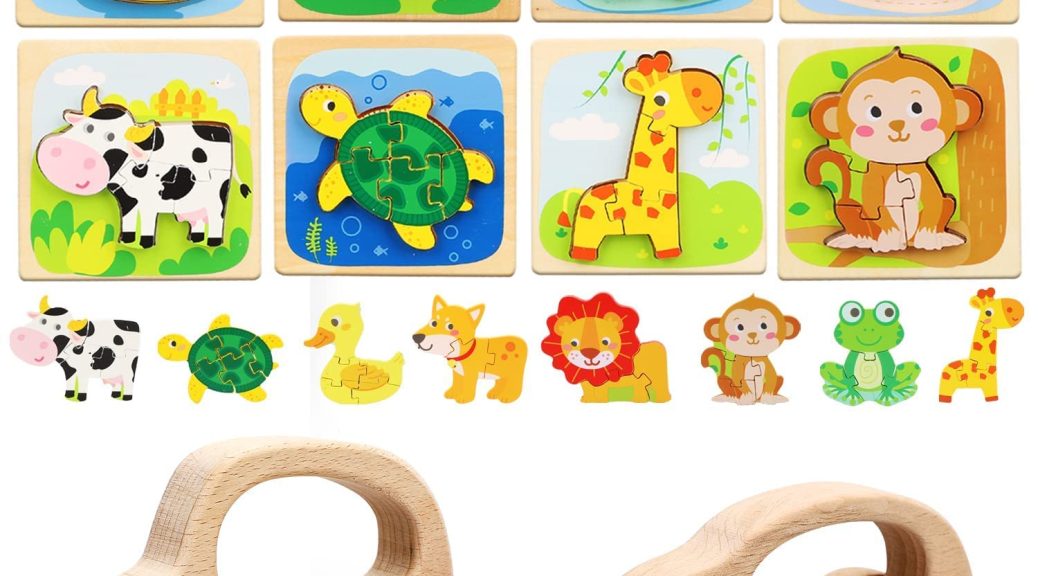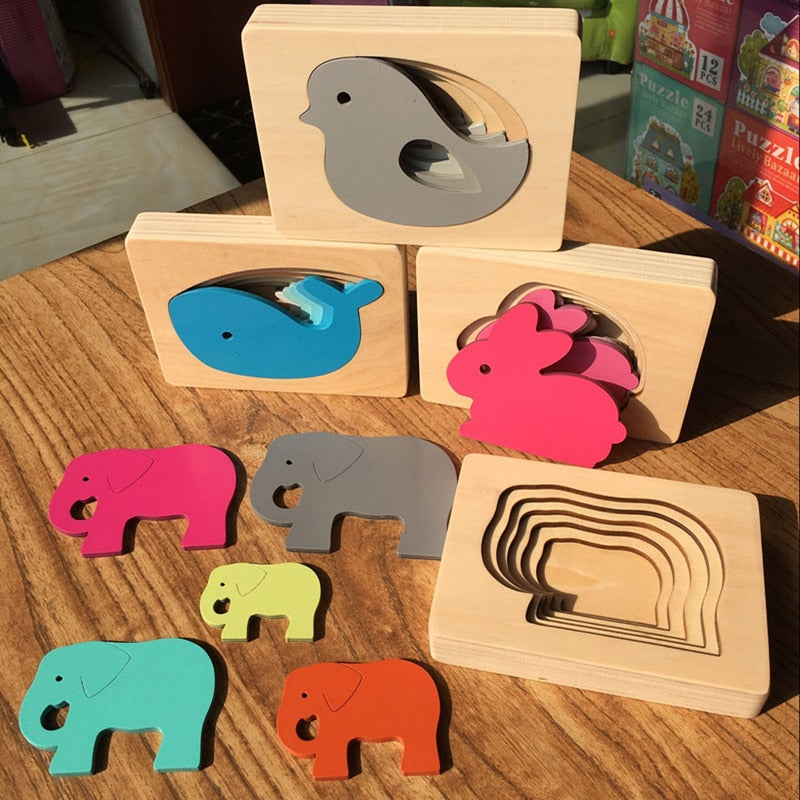The Importance of Puzzle Play for Toddlers
Puzzle play is crucial for toddler development. It challenges their growing brains. Toddlers learn to recognize shapes and patterns through puzzles. This type of play also encourages problem-solving skills. As toddlers try to fit pieces together, they develop spatial awareness. They learn the concept of ‘whole’ versus ‘part’. Puzzle play supports language development too. As toddlers describe shapes or colors, they expand their vocabulary. It also provides an opportunity for social interaction. Toddlers can learn to take turns and share when playing with others. Puzzles can be calming for toddlers. They offer a quiet activity that requires focus. This can help in developing attention span. Moreover, puzzle play stirs curiosity. It can spark a lifelong love for learning in young minds. In summary, toddler puzzle toys are more than just toys. They are essential tools for development. They prepare toddlers for future learning experiences.
Top Rated Puzzle Toys for Different Age Groups
Selecting the right toddler puzzle toys for various age groups is essential to match their developmental stages. Here’s a guide to the top-rated puzzles for different age groups:
Infants (0-1 years): For this youngest group, it’s all about sensory exploration. Soft puzzle mats with high-contrast colors are ideal. They can feel different textures and learn to grasp.
Young Toddlers (1-2 years): At this stage, chunky wooden puzzles with a few large pieces are excellent. They can practice fine motor skills while learning shapes and colors.
Older Toddlers (2-3 years): More complex jigsaw puzzles with more pieces are suitable for this age. They can start understanding how pieces fit together to form a picture.
Preschoolers (3-5 years): Preschoolers are ready for puzzles that challenge their problem-solving skills. Puzzles with up to 50 pieces or those that depict scenes from nature or favorite cartoons can be captivating and educational.
Remember, the most important aspect is that the puzzle is age-appropriate. It should not be too difficult to discourage them, or too easy to bore them. Toddler puzzle toys are a delightful way to boost brain development while ensuring your child is engaged and learning at their pace.
How Puzzles Support Cognitive Development
Cognitive development in toddlers is crucial for future academic success. Toddler puzzle toys play a significant role in promoting this growth. They enhance critical thinking as toddlers determine the correct placement of each piece. Memory improvement is another benefit, as toddlers recall shapes and colors. Puzzles also teach cause and effect. A toddler learns that their actions can solve problems. This type of play boosts concentration. Toddlers focus on completing the task, which sharpens their attention skills. Puzzles can introduce basic math concepts too. They involve counting pieces and recognizing patterns. Interactive play with puzzles fosters decision-making. Toddlers choose which piece to place next. This teaches early strategic thinking. Lastly, puzzles can improve cognitive flexibility. Toddlers adapt to new strategies as they work through different puzzles. Overall, toddler puzzle toys are invaluable in nurturing a child’s cognitive abilities.
Sensory Puzzles and Their Benefits
Sensory puzzles engage more than just the eyes. They offer rich, tactile experiences that are crucial for toddlers’ brain development. Sensory puzzles can include different textures, sounds, and even smells. These sensations stimulate various neural pathways. Playing with sensory puzzles helps toddlers develop their sensory processing abilities. It also enhances their ability to learn through touch and exploration. Here are some key benefits of incorporating sensory puzzles into playtime:
- Sensory Exploration: Toddlers discover the world through their senses. Sensory puzzles provide a safe way for them to explore different textures, contrasts, and materials.
- Fine Motor Skill Development: As toddlers manipulate puzzle pieces with varying surfaces, they improve their dexterity and hand-eye coordination.
- Language Skills: Describing sensory experiences helps toddlers build their vocabulary. Words like ‘smooth’, ‘rough’, ‘squishy’, and ‘hard’ become part of their language.
- Cognitive Growth: Sensory puzzles challenge toddlers to match pieces based on sensory input, not just visual cues. This enhances their cognitive abilities to classify and sort.
- Emotional Regulation: Sensory activities can be soothing. They often help toddlers regulate their emotions and can be especially beneficial for those who are easily overstimulated.
- Social Interaction: Sharing sensory puzzles can promote social skills. Toddlers learn to communicate and cooperate as they play together.
In essence, sensory puzzles are a vital part of toddler puzzle toys. They cater to a child’s developmental need for sensory feedback. Introducing these puzzles early on can have long-term benefits for toddlers’ overall development. Hence, parents and educators should consider sensory puzzles a valuable addition to any play-based learning environment.
Tips for Introducing Puzzles to Toddlers
Introducing toddler puzzle toys can be both fun and educational. To ensure a positive experience, follow these simple tips:
- Start Simple: Begin with easy puzzles. Ones with a few large pieces are best for starters.
- Create Routine: Make puzzle time a regular activity. This builds consistency and anticipation for learning.
- Puzzle Selection: Choose bright, attractive puzzles to catch your toddler’s interest.
- Be Patient: Allow toddlers to explore at their own pace. Don’t rush the process.
- Guide, Don’t Solve: Give hints, but let toddlers place pieces themselves. It fosters a sense of achievement.
- Join the Fun: Work on puzzles together. It’s a chance to bond and guide your child’s learning.
- Celebrate Success: Praise your toddler’s efforts. Every small success boosts their confidence.
- Add Variety: Introduce new puzzles gradually. Different types keep their interest alive.
- Balance Challenge: Offer slightly more complex puzzles over time. It keeps them challenged but not frustrated.
By using these tips, parents and caregivers can make puzzle play a valuable addition to a toddler’s daily routine. It’s a nurturing way to encourage learning and development with the joy of play.
Enhancing Fine Motor Skills with Puzzles
Puzzles are excellent for enhancing fine motor skills in toddlers. These skills involve small muscle movements in the fingers, hands, and wrists. When toddlers grip puzzle pieces, they practice pinching, grasping, and manipulating objects. Each action aids in strengthening these important muscles. This develops the dexterity needed for future tasks such as writing and tying shoes.
Here are some ways puzzles boost fine motor skills:
- Pincer Grip: Picking up small pieces encourages the use of the pincer grip, which is essential for holding a pencil.
- Hand-Eye Coordination: Matching puzzle pieces to the correct space improves coordination between what the eyes see and how the hands move.
- Wrist Movement: Turning pieces to fit properly develops wrist agility, vital for tasks like turning doorknobs or using utensils.
- Bilateral Coordination: Using both hands together to solve a puzzle teaches toddlers to use their hands in a coordinated way.
Parents and educators should choose toddler puzzle toys that are sized just right for little hands. Chunky pieces are easier for toddlers to handle and manipulate. As their skills improve, introducing puzzles with smaller and more intricate pieces can offer a healthy challenge. The key is to progress slowly to maintain interest and avoid any frustration. With patience and the right puzzles, fine motor skills can develop naturally through play and exploration.
Puzzle Toy Safety Considerations
When selecting toddler puzzle toys, safety is paramount. Here’s what you need to keep in mind:
- Non-toxic Materials: Always check for non-toxic labels to ensure the puzzle is safe if mouthed by toddlers.
- Choking Hazards: Avoid puzzles with small pieces that could be choking hazards for young children.
- Durable Construction: Puzzles should withstand rough handling without breaking into sharp pieces.
- Smooth Edges: Ensure all puzzle pieces have smooth edges to prevent cuts or scrapes.
- Cleanliness: Opt for puzzles that are easy to clean, as toddlers often put pieces in their mouths.
- Age-Appropriate: Ensure the puzzle’s complexity matches the child’s age and skill level to avoid frustration.
- Supervision: Always supervise play to quickly address any potential safety issues.
By keeping these considerations in mind, you can choose safe and appropriate puzzles for your toddler. Safe play is enjoyable play, and with the right precautions, puzzle toys can be a secure part of a toddler’s educational activities.



